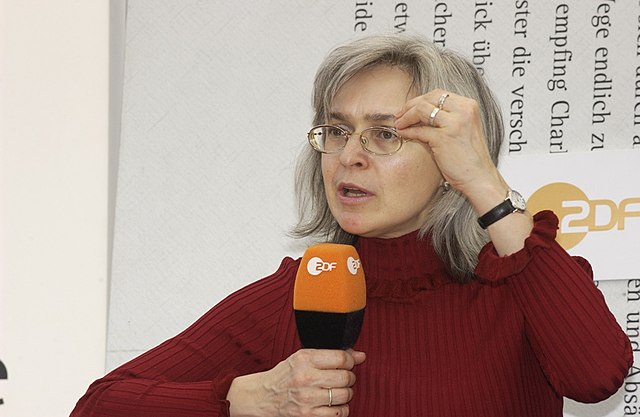(Reuters) – A man convicted over the murder of the Russian journalist Anna Politkovskaya, who was best known for reporting on abuses in Russia’s war in Chechnya early in Vladimir Putin’s presidency, has been pardoned in return for fighting in Ukraine, the news outlet RBC reported today.
Politkovskaya was shot dead outside her flat in Moscow in 2006, triggering an outcry in the West and underlining the growing dangers of reporting in Russia as Putin gradually clamped down on independent media.
Sergei Khadzhikurbanov, a former law enforcement officer, was sentenced to 20 years in prison in 2014 for organising the killing.
RBC quoted Khadzhikurbanov’s lawyer Alexei Mikhalchik on Tuesday as saying he had last year taken advantage of a scheme, known to have been used principally by the Wagner mercenary force, to sign up from prison to fight in the war in Ukraine, which Moscow calls a “special military operation” (SMO).
“Then he was pardoned, and is now participating in the SMO as a volunteer soldier, having entered into a contract with the ministry of defence,” Mikhalchik said.
Khadzhikurbanov was convicted in 2014 along with four other men from Chechnya, a mostly Muslim region in the northern Caucasus where Russia and its local allies crushed two rebellions, in 1994-96 and, under Putin, in 1999-2009.
In 2018, the European Court of Human Rights in Strasbourg found that, while the authorities had found and convicted a group of men who had directly carried out the contract killing, they had “failed to take adequate investigatory steps to find the person or persons who had commissioned the murder”.
Politkovskaya, who did much of her work for the independent investigative magazine Novaya Gazeta, now banned in Russia, won more than a dozen international prizes for reporting on abuses committed in Chechnya by Russian and allied forces as well as by rebels, despite repeated detentions and death threats.
In a joint statement, Novaya Gazeta and Politkovskaya’s children, Ilya and Vera, said the pardon was “a monstrous injustice and arbitrariness, an outrage against the memory of a person killed for her convictions and the performance of her professional duty”.






